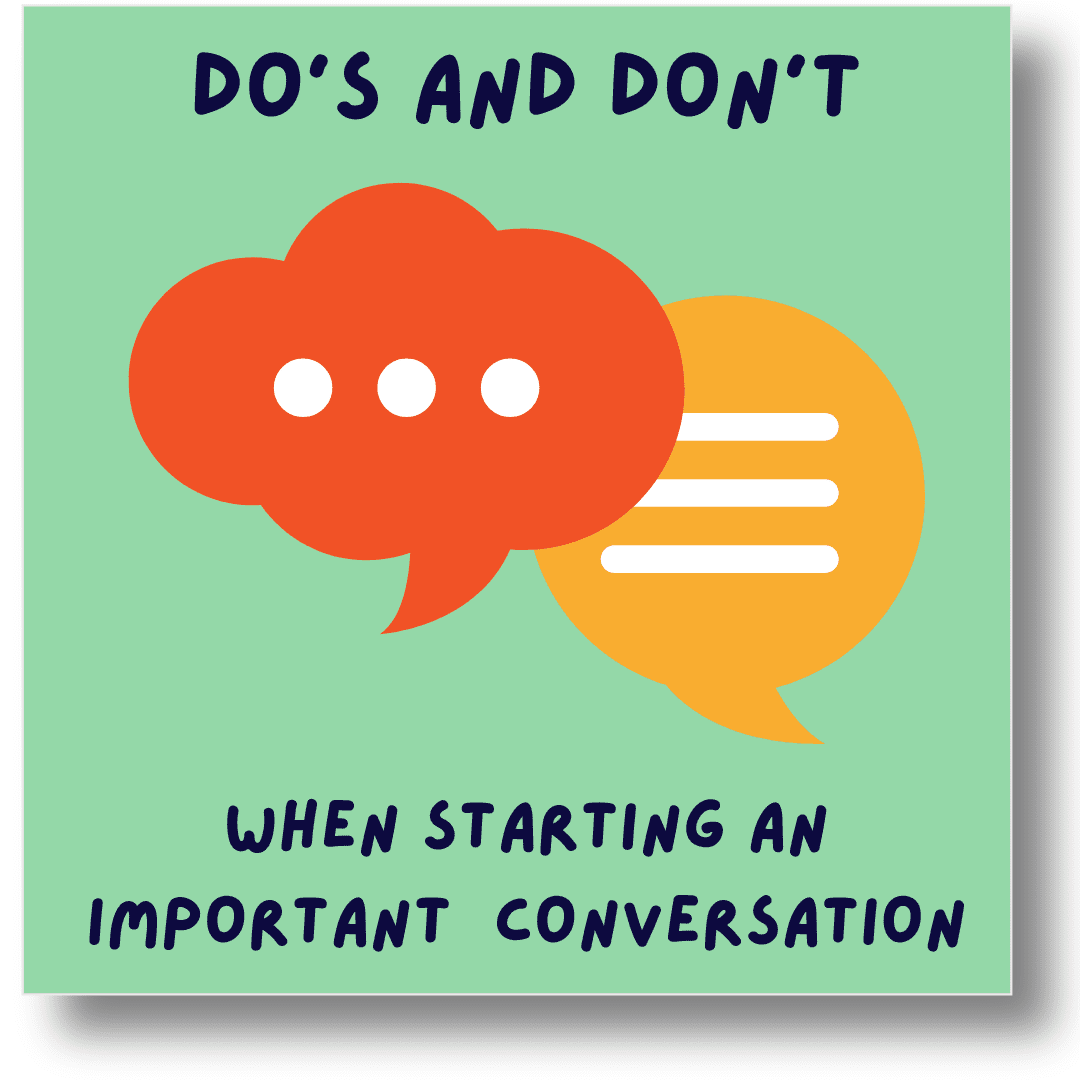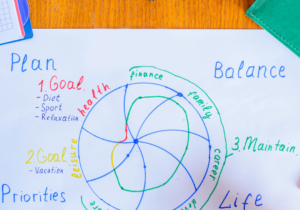Should you eat a donut? How to feel good about your food choices
Help, I don’t know what to do. Should I eat a donut?
Welcome to a new feature at Balanced Healthstyles, one where we feature your questions and Master Health Coaches offer tips to overcome your real life problems so that you can take the action required to live the healthier lifestyle you are striving for.
“Should you eat a donut?” You might think the answer is obvious, but like most things, the real life issue is a bit deep. This reader really wants to know how to tell their spouse they want to make a healthier change in their lifestyle.
The Healthstyle Dilemma
When your spouse has no idea you want to make a change and has lovingly brought home a dozen doughnuts for the two of you to share.
The listener has decided NOW is the time to tell her spouse about her healthier plans, she doesn’t want to hurt or offend her husband, and she doesn’t know what to do with the donuts.
Listen in as Master Health Coaches Michelle and Heather discuss possible solutions.
DEAR COACH:
My spouse loves me. I just don’t know if he supports me in getting healthier.
We have always done so many things together, and that includes eating - lots and lots of eating. It is a way we socialize together. And it’s about the only type of date we still go on - out to eat. Eating is a big part of our lives and always has been.
Now I am wanting to change how I eat. I want to eat better so that I lose weight and can move more easily. I have noticed that the little things in life are getting harder and harder to do, like getting out of the sofa after watching tv in the evening, walking up the stairs to my bedroom, or even carrying in the groceries. I believe it is because I have put on more weight than my body feels comfortable moving in. So - my plan - watch what I eat - try to make healthier choices. I wanted to do it without saying much to anyone. You know - keep it a secret until I really know I was committed to doing it. Well, I am committed. And I know I should share my new plan with my spouse, but I am unsure how to tell him.
I don’t want to hurt his feelings or make him think he must watch what he eats.
Just the other day, he came home with a dozen donuts. I know he brought them home with a loving intent - because he doesn't even know what I am trying to do. A small part of me felt immediately upset and hurt - but that is wild - I need to let him in on what I am doing. There are only two of us at home and now there are 12 donuts staring at me on my kitchen counter.
We have eaten together happily for years, and now I am changing the rules. How do I have this conversation with him, and what do I do with the donuts in my kitchen?
A Health Coach’s Overview
Coach Heather Lynn Darby notes there are a couple of things going on.
1. How will this reader handle the shift in the couple's relationship? To be honest, it is a bit dicey because it can be emotionally charged.
Having a conversation with a loved one about making a change in your personal lifestyle holds a lot of meaning and feelings around it. When opening up a conversation with someone you love, keep in mind that the conversation can be filled with a lot of feelings, just being aware of the potential for things to get emotional helps direct the conversation. Think about what you want accomplished from the discussion and do your best to stay in that lane. Keep the goal, the goal.
2. How to honor the relationship.
A conversation has the best chance of being successful when you respect and honor the person you are talking to. This doesn’t mean you need to adjust the topic to please the other person, it means understanding who the other person may feel and being open to listen to what they have to say on the matter.
3. What to do about an “unsupported” spouse.
When a person you live with doesn’t support you, it can make healthier changes more difficult. Understanding why you are committed to making a change will help keep you confident you can accomplish it, even in times of difficulties or lack of support.
Going outside your immediate circle of support may help. Look for like minded people you can relate to or hire support. Sometimes the best support is from those who have a vested interest in your success.
4. What to do about the donuts? Eat a donut?
There are so many options here, we list seven in the article below, but there could be many more. The biggest take away is to know what you want and ask yourself, does this move me closer to what I want or further away?
Either answer is ok, it’s more about the length of time you have given yourself to reach your goal and your flexibility to meet real life as it happens without guilt, shame or judgment because you make a choice that feels best at the time.
Finding Bright Spots
Coach Michelle Johnson Jerome added some of the positives she saw in the reader's question.
Finding the positives is also called, looking for the bright spots. This means looking at the things that are going well. It is a solution focused coaching tool that was made popular in the book by Chip and Dan Heath called Switch.
1. This reader was very aware and reflective about the things she said to herself when she had hurt and upset feelings about bringing the donuts home, even though her husband was not privy to any of it.
So often we forget to take the time to think about how something makes you feel. A lot of insight can be made when you give yourself time to pause and question, “Why do I feel this way?”
2. Are the upset and hurt feelings the reason this reader decided to ask for help?
It takes a strong person to ask for help. Knowing that you need support is not a weakness; it shows that you care enough about the situation to get feedback.
3. Kudos to the listener for NOT wanting or expecting the spouse to want to make the same change.
Wanting to change for the better can be contagious, but placing the want on another person can have the opposite effect.
Opening the conversation
How do you open up the conversation to let your partner know you are making modifications to how you eat and will you eat a donut?
Let’s start with what you don’t want to do to start the conversation.
- expect another person to be a mind reader.
- get upset or raise your voice.
- assume the other person has noticed your changes.
- write another person’s narrative.
- bring up past hurt experiences.

With the don’ts in mind, what are some of the dos?
Before entering into the conversation, think about what type of outcome you would like to see happen from your discussion.
Enter your talk with the outcome in mind, yet be flexible enough to hear the other person’s point of view.
In this example, the outcome could be to:
- create an argument
- call someone out for all the wrong things they do
- ask for help about specific strategies for reaching your health goals
- have someone just listen to you
- get support for this one issue and open up the conversation for future use
Look at your reasons for wanting to change and share them with your spouse in a way that they can relate to.
For example, with this reader, she could tell her husband,
- “Have you noticed how I struggle to get off the sofa in the evenings?”
- Or “Have you seen me have more difficulties going up the stairs?”
Own your reasons why you feel change is necessary.
It can be hard to admit to yourself, let alone tell someone else and ask them for support.
Clarifying your reasons for your healthier goals turn a vague goals like, “I want to eat healthier.” into something more precise. Without a clear reason for why you want to change you will have no idea if you are making progress, nor will you know how you plan to achieve success.
To turn a goal from vague to unshakeable ask yourself these questions:
- What EXACTLY do you want? And how would you define the completion of it?
- Why do you want it? And how will it make things better or different for you?
- How will you know when you’ve gotten to the goal? How will you know when you are moving in the right direction toward your goal? And what specific measurement will tell you about your progress?
If this feels hard, talking it through with a good friend or a health coach will help. That’s the beauty of sharing your goals with others.
Be clear about why you want to change and how this is not about wanting or even considering having the other person change.

A goal with a purposeful “why” is like a tree with deep roots. Your purpose is what grounds you. It connects you to what matters. It helps you keep moving forward.
When it comes to wanting to change another person, you probably have some real life experience as to how that worked out. Typically not so well.
The first rule of thumb is to recognize that a person always has a choice to change or not to change and until that individual is ready, willing and able to change along with having a deep and meaningful why for change, no one or no thing will make them until they want it for themselves.
Validate verbally that you acknowledge the other person's good intentions.
It feels good to be seen and understood. When you have something important to say to another person make sure that you express the good in the actions or thoughts that the other person did.
Be truthful and heartfelt, as in this readers story, she knew her husband was not out to sabotage her, he was simply doing what he had always done, share with her, want to enjoy the donuts with her, bring her joy.
Look at how your problems (your reason for change) affect your partner.
This can be hard, what has been missing in your relationship due to your reason to change? Have you placed additional responsibilities on your spouse because of your reason for change? How will life improve for your partner as you change?
Do keep in mind that when emotions are part of the conversation, it is really easy to want to bring up many things.
Keep to the topic at hand.
Offer the other person specific ways they can support you.
Having a clear why will give you the confidence to ask for help. If you know, there are things that seem harder for you that may trigger you into actions you would rather not deal with, express your boundaries.
Do ask your spouse for their ideas, and how they see their role in the situation.
Recognize that the only person you can change is yourself.
Acknowledge what part of the miscommunication you had a role in.
What reasonable and rational thought process went through their head when they brought the offending food home?
Put yourself in the other person’s shoes
Invite the other person to share their story.
Ensure everyone knows the whole story and then proceed together with what to do with the information.
Be respectful and honest.
Focus only on the problem at hand, don’t bring up past issues.
Be able to receive the help and support of another person.
Do realize this is the start of an open conversation that will more than likely have more dialogs to come.
The bottom line, someone doesn’t need to understand or do it with you to support you fully. And if you think you are weak because you want to ask for help, steal our mantra:
“Strong people ask for help”

What about the donuts?
Eat a donut or not? Here are the options.
OPTION 1: Get rid of the donuts by eating all of them.
OPTION 2: Get rid of the donuts by throwing them away
OPTION 3: Share the donuts with your neighbors.
OPTION 4: Decide how a donut fits into your plans.
Consider not eating an entire donut, but maybe half or a fourth of a donut. If this is the option you like best, you may also like this downloadable flow chart of questions to help you decide if you would like to eat it.
OPTION 5: Freeze the donuts.
OPTION 7: Create an identity statement around the behavior you are trying to implement.
In this case you could say, “I am a person who doesn’t eat donuts.” It can be that simple.
OPTION 6: Sabotage the offending donuts by pouring water on them, or sprinkling salt on them or that they are unappealing.
In the end you don’t have to make life harder than it has to be.
Sometimes a person who you wish would support you is not able to. That is ok. There are other ways to get support. You could look to a friend, seek a counselor or hire a health coach.
Having someone on your side who is a bit more knowledgeable than you, that can help you navigate through times you become uncertain as to what to do can be so valuable, especially when you have struggled to meet the same goal in the past. Giving yourself the gift of support is one of the best things you can do for yourself.
If hiring a Health Coach sounds like the right fit for you, be sure to check out the many well-loved and qualified coaches on our site.
What would you suggest for this reader’s situation? You can let us know in the comments below.
Do you have a question you would like a Master Health Coach to answer? It’s easy, ask your question using this form.
Michelle Johnson Jerome is an expert on busting through perfectionism. She is passionate about helping others live life with purpose and joy. By drawing on her extensive experience as a nutrition coach, personal trainer, and yoga instructor she helps develop a realistic approach to goal setting that allows you to make progress and stop obsessing over mistakes.
Find other articles written by Michelle on her coach profile. Discover your "easy button": learn how to manage life's unpleasant parts so you can move forward, reach your goals, and live your best life.









